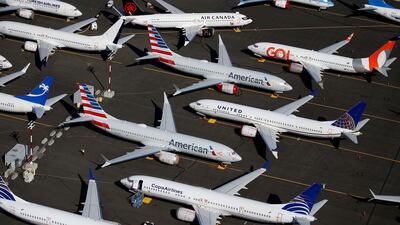In the first quarter of this year, business and leisure travel took a profound hit as a consequence of the coronavirus pandemic – a hit which knocked heavily on oil prices.
However, while there are still forceful headwinds for the travel and oil sectors, there are also signs of recovery.
The recovery stems from two main factors; supply cuts by Opec+ - an alliance headed by Saudi Arabia and Russia - and the gradual reopening of economies which have passed through the worst of the infection and are lifting coronavirus travel restrictions.
On the supply side, a timely move by Opec+ towards supply cuts has paid off in terms of a more stable oil market and prices in a range from $35 to $40.
At this stage the ability to make reasonable projections and rely on market factors like inventory levels, the level of the US dollar and other benchmarks are now returning to normal. This is in sharp contrast to earlier this year when oil prices entered negative territory and investors did not know which way to turn.
Opec’s cuts certainly helped to stabilise the market but also had the effect of building inventories to high levels, meaning a glut is still a risk and the oil markets are exposed to shocks.
The lockdowns worked to stem the coronavirus tide. The European Commission recently recommended that EU countries open their borders for travellers. The classic tourist destinations like Greece and Italy have already started accepting travellers, and within China, domestic tourism has soared.
While this is a welcome development for oil markets, airlines and other tourist businesses, there is still a threat of spikes in the number of new coronavirus infections. The stop-and-go approach continues to weigh on the recovery outlook, especially after China suspended many flights in and out of Beijing after a spike in new cases on June 17.
Having said that, China’s demand for oil has still revived strongly amid an increase in domestic tourism and consumer preference for private cars over public transportation because of the risk of contracting coronavirus.
Although the circumstances are wearing on business sentiment, they have pushed oil giants like BP towards efficiencies, positioning them for a recovery albeit with leaner operations down the road. Earlier this month, BP announced 10,000 job cuts and a shift towards a balance between fossil fuel energy and green energy.
The drive towards diversification triggered by the coronavirus pandemic deepens an already growing trend of oil companies adopting alternative energies. This may have a long-term dampening effect on crude prices but opens new prospects for alternative energy. Rystad Energy said it expects alternative energy and fossil fuel energy markets to reach parity in the medium-term, possibly as soon as 2021 or 2022.
On a wider scale, economic diversification is also the secret ingredient in the recipe for a strong recovery. The UAE is one such diversified bloc, a fact that Moody’s Ratings Agency sees as positive.
Although there are signs of recovery and stability in oil markets as the travel industry goes slowly back to work, there are still several downsides to bear in mind. Recessions threaten spending in Europe and the US, flights between China and the US are limited to four per day and Australia is unlikely to open its borders for travel until next year, according to the country's tourism minister Simon Birmingham.
On top of that, there is the risk of a second wave of infections leading to a return of lockdowns in key economies, pushing the fragile recoveries further into the future.
Based on the current circumstances, a full recovery in the travel market is unlikely to happen this year, meaning demand for jet fuel may stay subdued during the second half.
While closed borders inhibit the travel industry, consumers have started using their private cars to travel domestically. As car use rises rapidly, oil prices may see some more support in the near term as congestion levels rise in France, the UK, Sweden and other countries. However, the main obstacles to a rise in oil prices remain: the coronavirus pandemic, travel restrictions and the threat of a second wave of infections.
Hussein Sayed is the chief market strategist at FXTM

